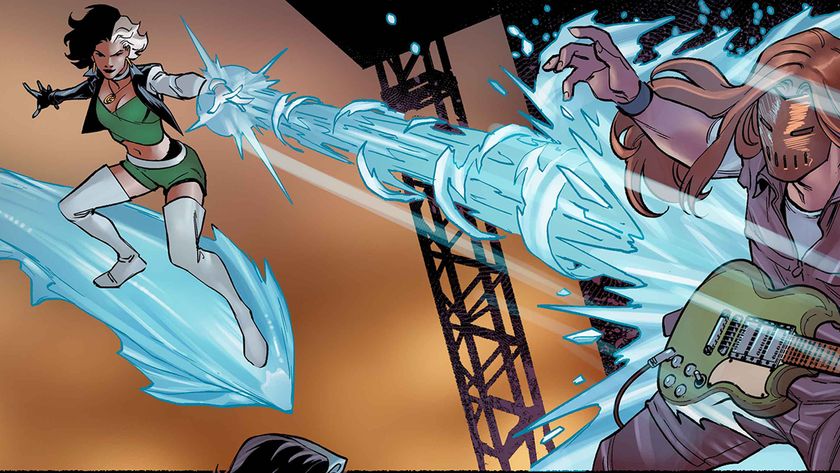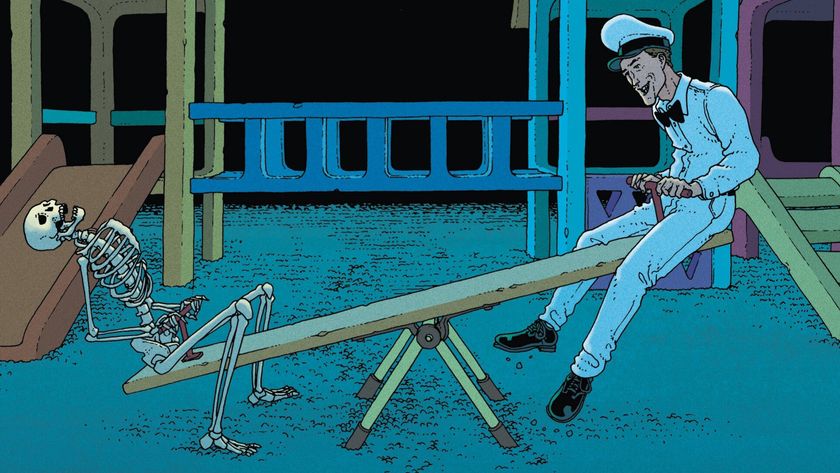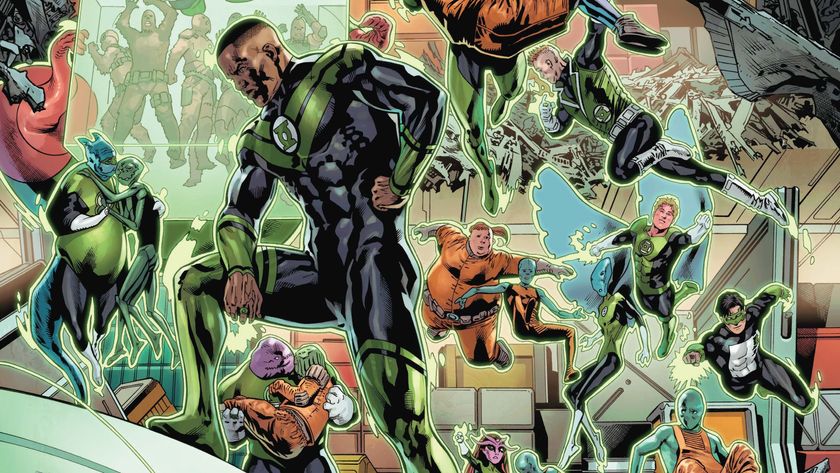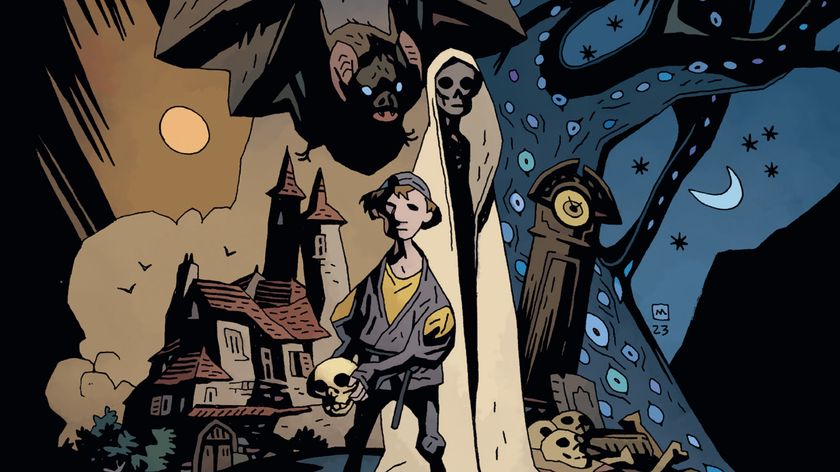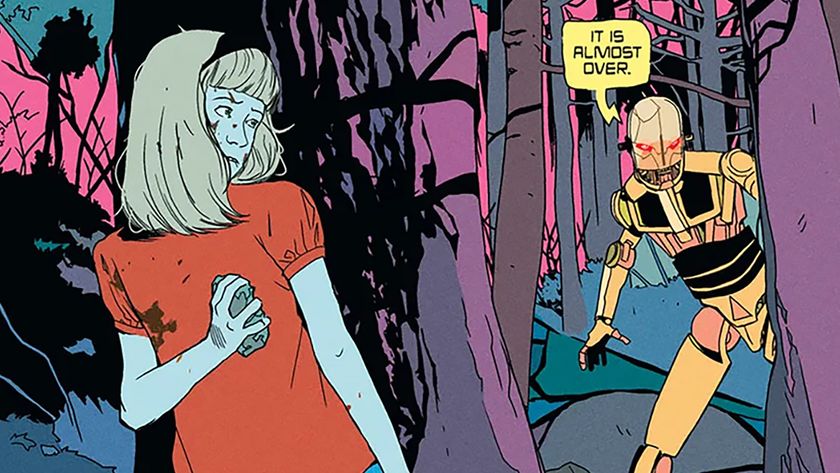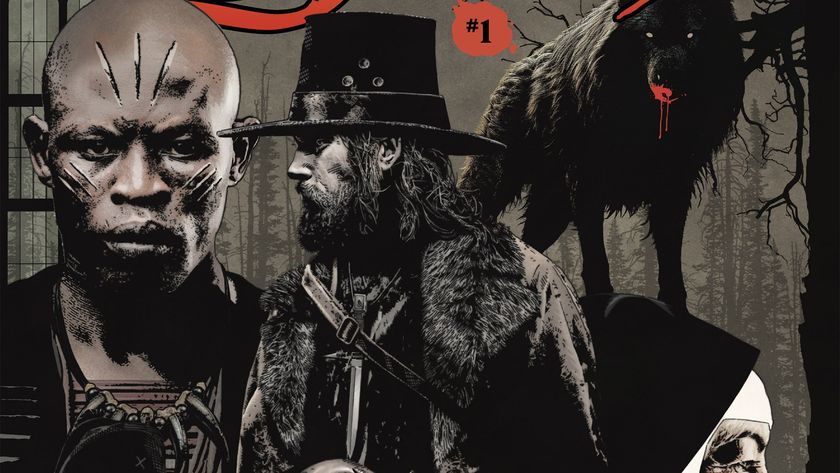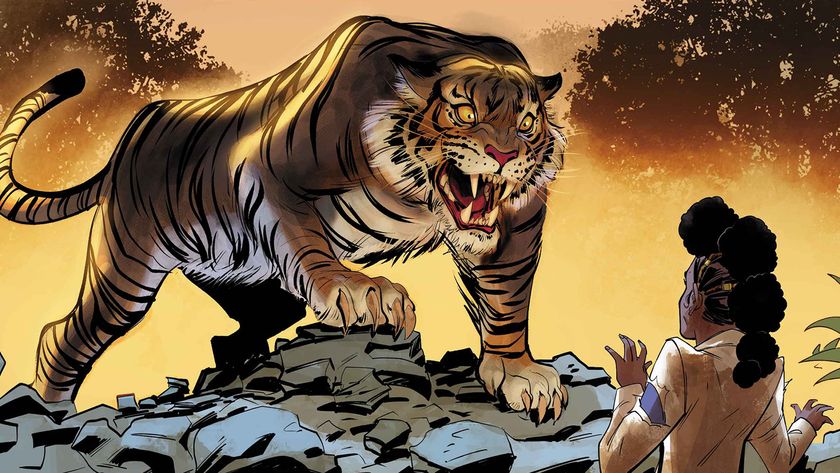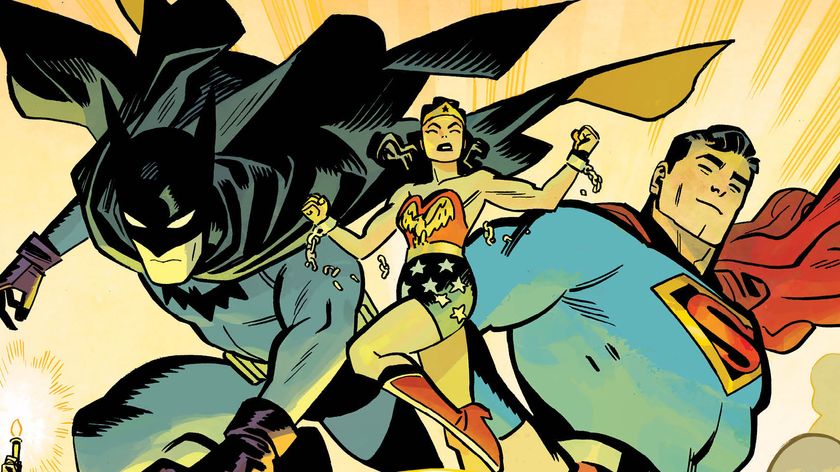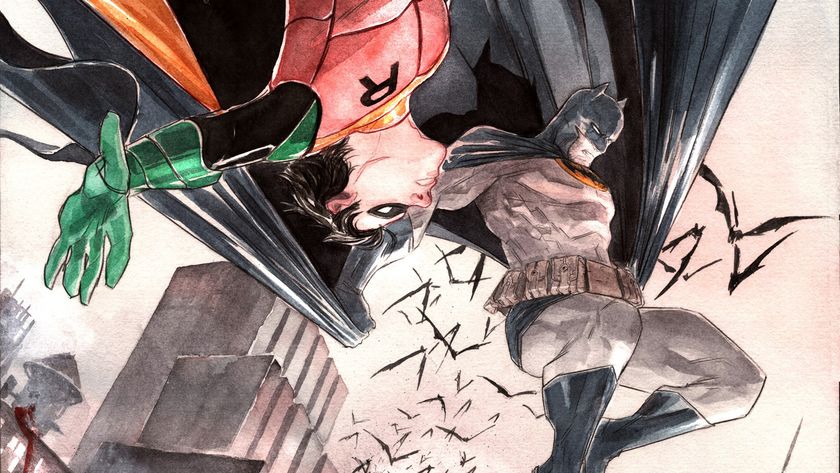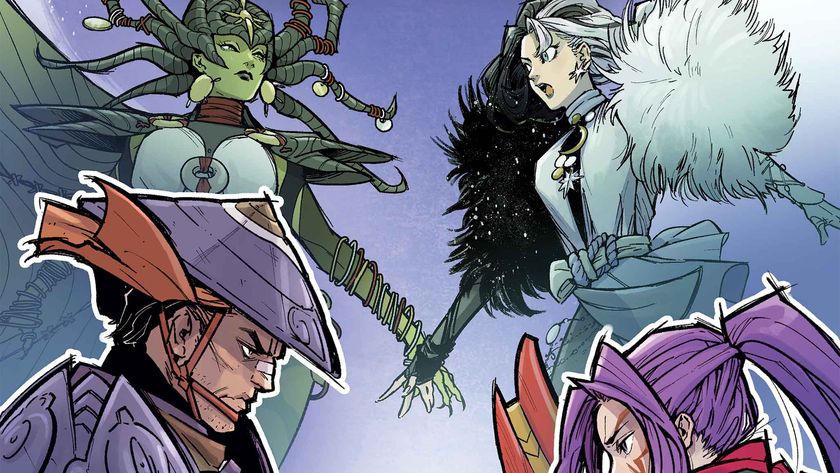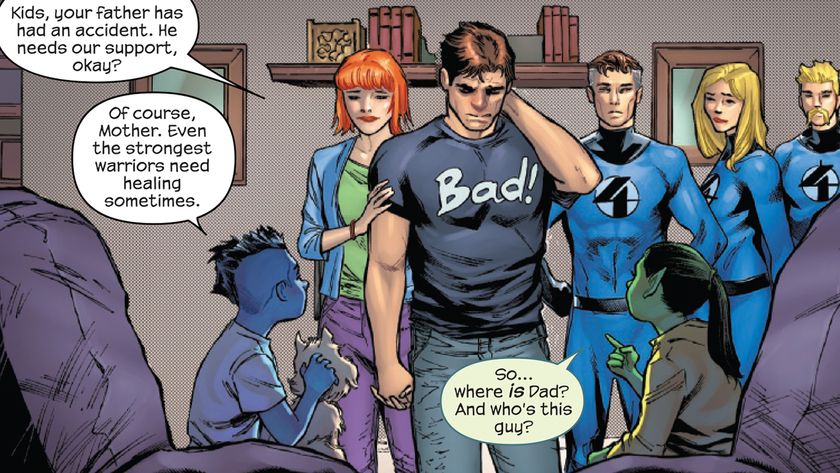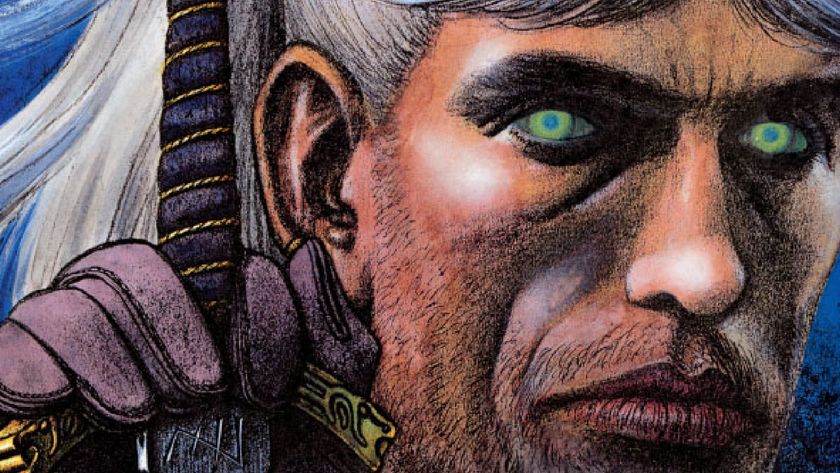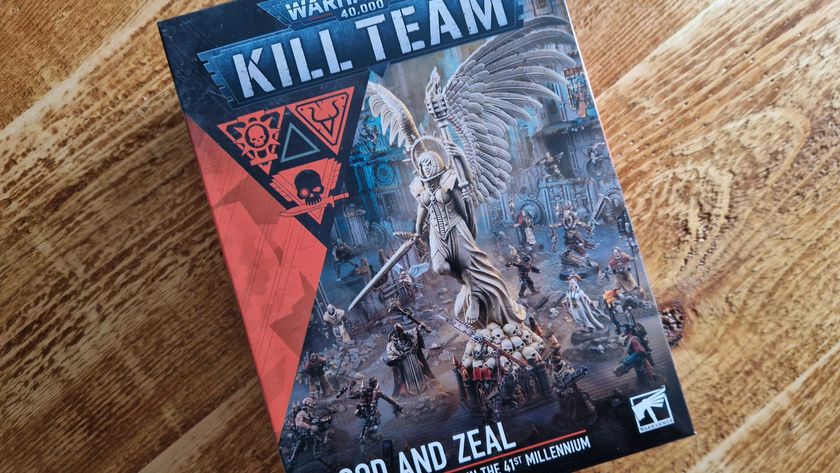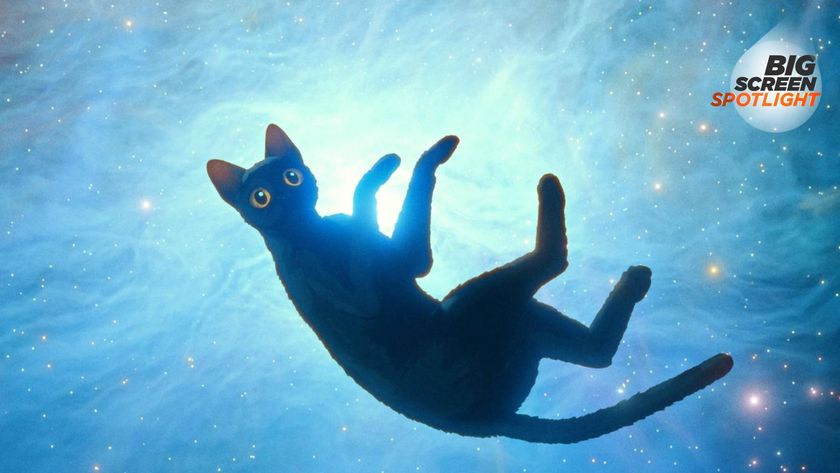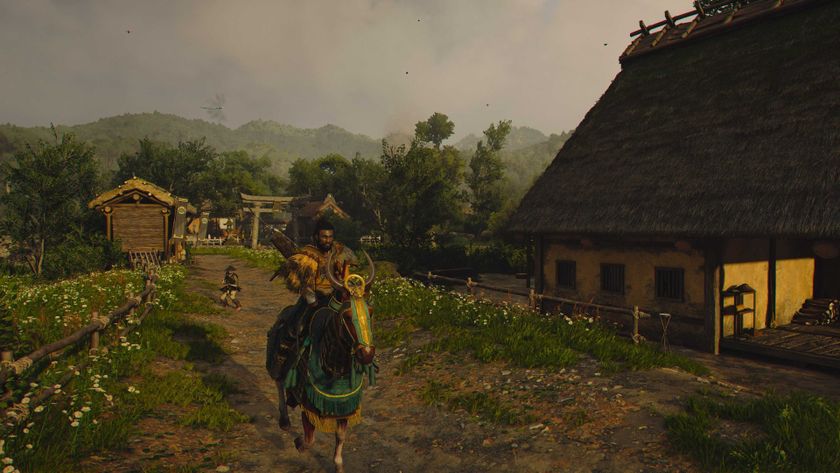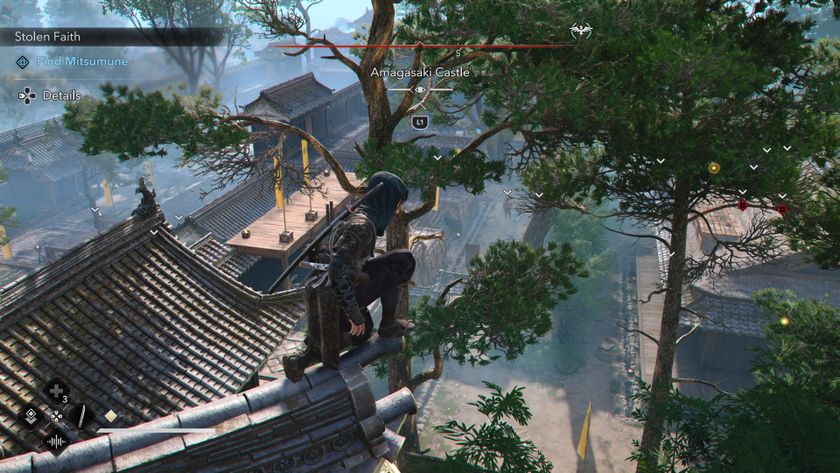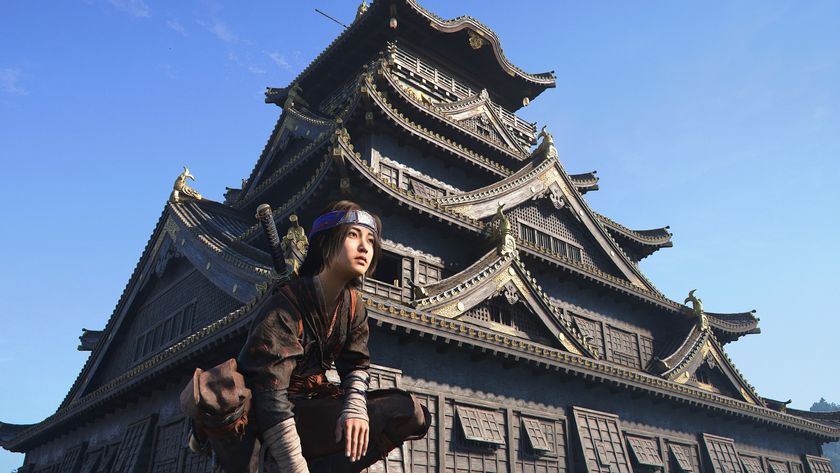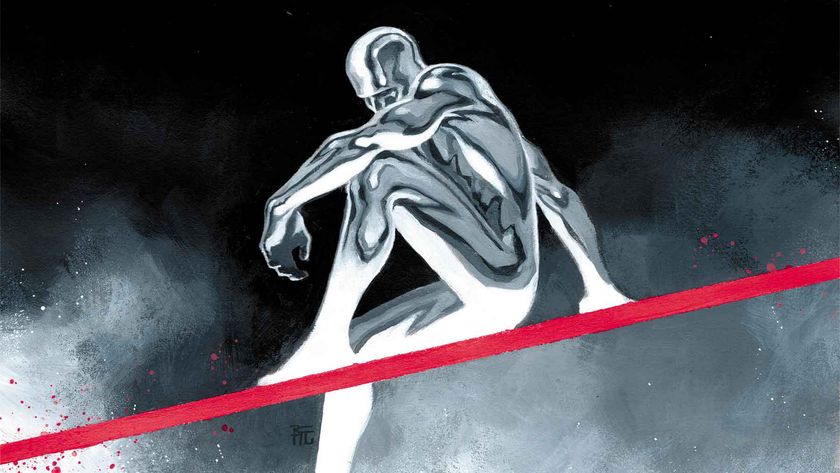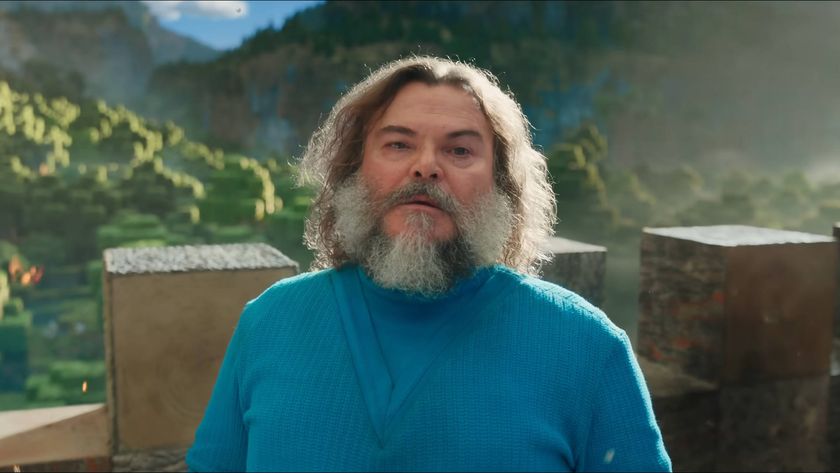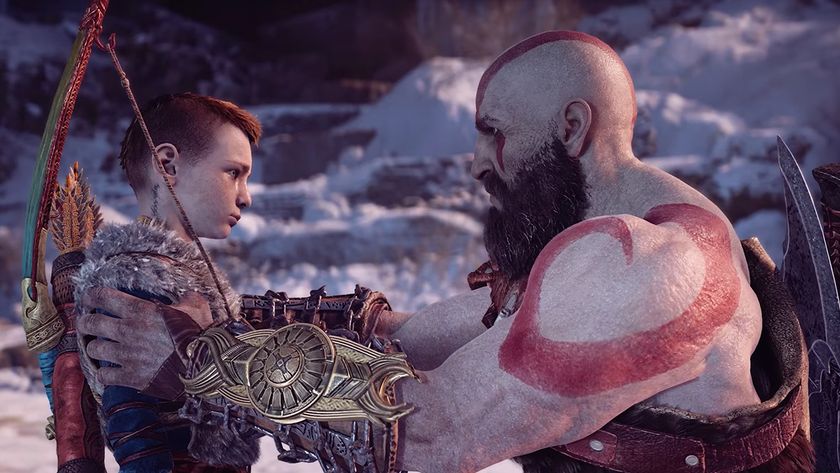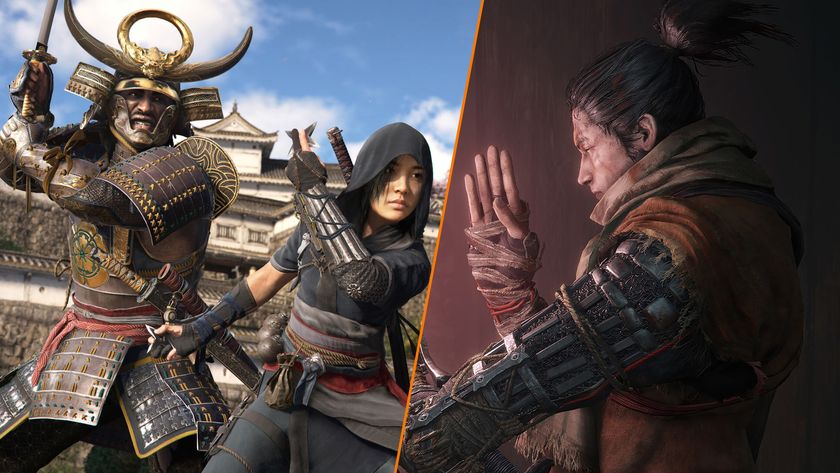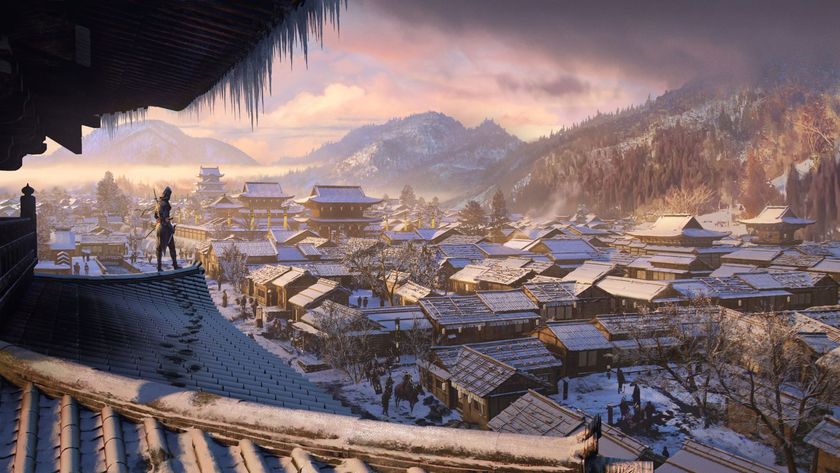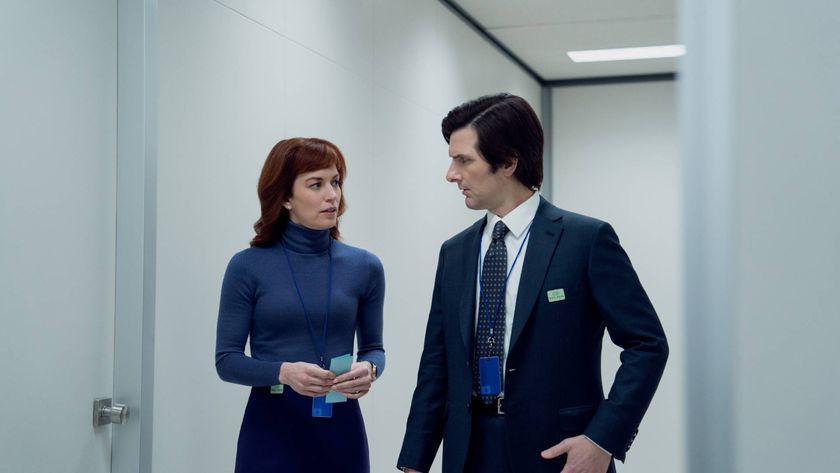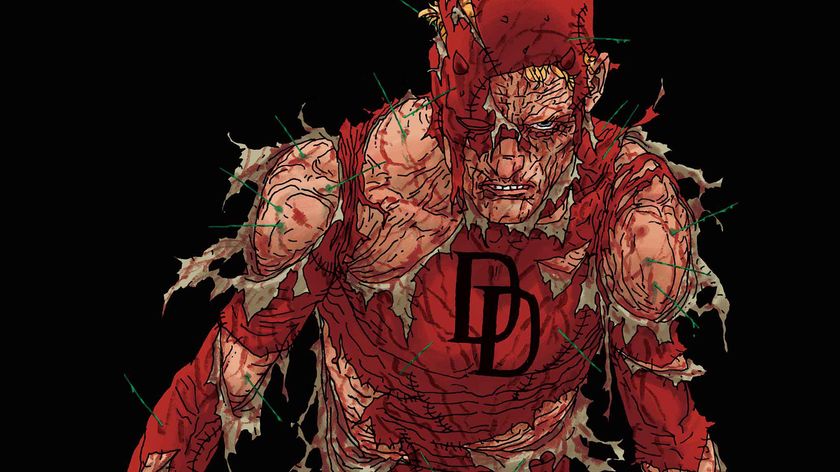The Doors graphic novel will leave your "head spinning in the best possible way" if Leah Moore has her say
Leah Moore checks into the Doors' Morrison Hotel
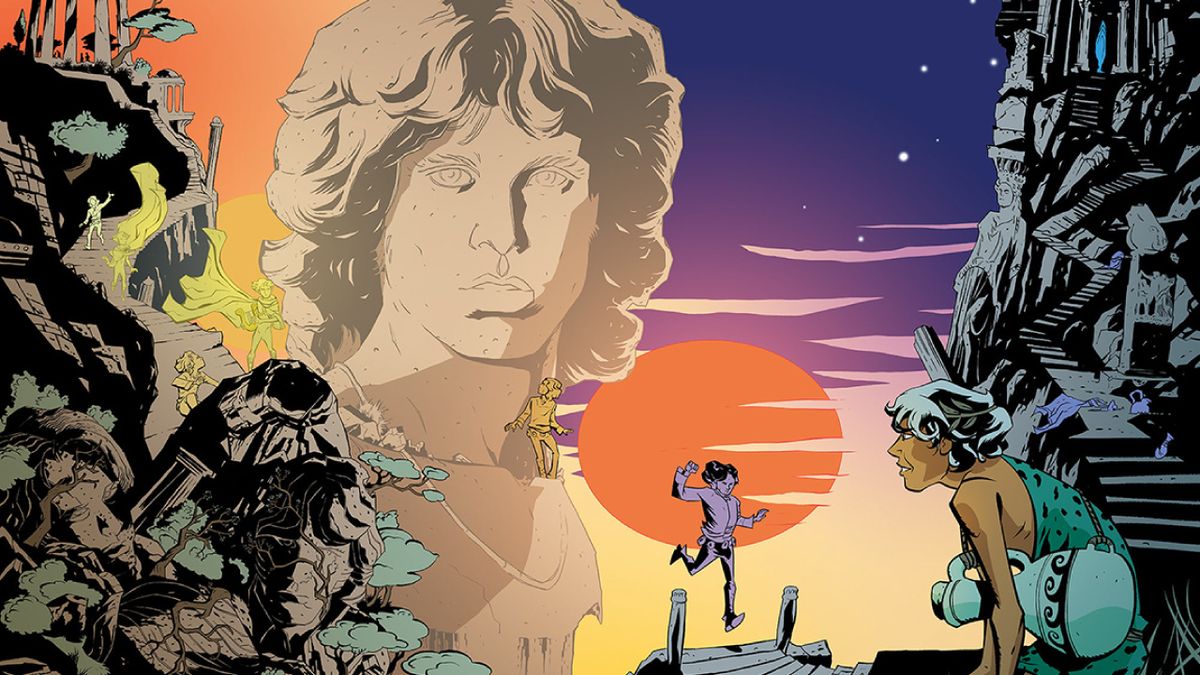
The Doors are breaking on through to the comics side with the new OGN Morrison Hotel.
Writer Leah Moore and a host of artists including Michael Avon Oeming, Colleen Doran, and more are taking part, with nearly a dozen individual stories - like songs on the namesake 1971 album the OGN's title derives from.
But this graphic novel isn't a blow-by-blow biography - instead its a musing on the Doors' influence, inspiration, and thinking as displayed in their music, their concerts, and the four men's lives. Moore and the others involved in Morrison Hotel are helped along the way with Robby Krieger and John Densmore, the two surviving members of the Doors.
With Morrison Hotel going on sale this Wednesday, Newsarama spoke with Moore about the comic, the band behind it, and stepping in to document a band who were already legends before she (or I) were born.
Newsarama: Leah, what's your personal connection to the Doors - before the idea of this comic came up?
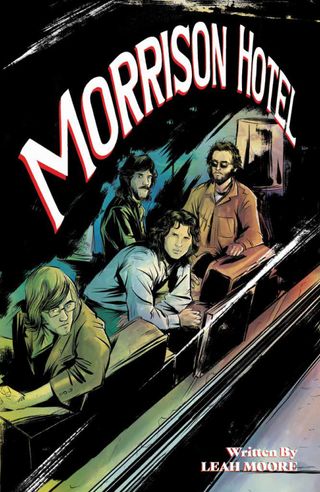
Leah Moore: Well, its hard to put a date on it exactly, but it was when I first saw The Lost Boys, when I was about 13 or 14 maybe? The Echo and the Bunnymen cover of 'When You're Strange' just oozed cool, and then the big poster of Jim in the Vampire lair sealed the deal, really - you can't argue with that face can you?
A friend in school, Kerry, was as obsessed with them as I was and while everyone was going mental about MC Hammer, we were listening to the Doors. When we went on a school trip to Paris, we asked our teachers if we could detour to visit Jim's grave in Pere Lachaise Cemetery, and so the whole class trooped up there in the pouring rain! Oscar Wilde is buried there, and Chopin, but we were only interested in Jim Morrison.
Comic deals, prizes and latest news
Get the best comic news, insights, opinions, analysis and more!
Nrama: Like me, you were born in the late '70s and the Doors were over before we even began.
What's it like writing about a band that's already grown beyond just a group of guys playing music but into this phenomenon whose story has almost turned mythological over time with stories, rumors, speculation, and hey, an Oliver Stone movie.
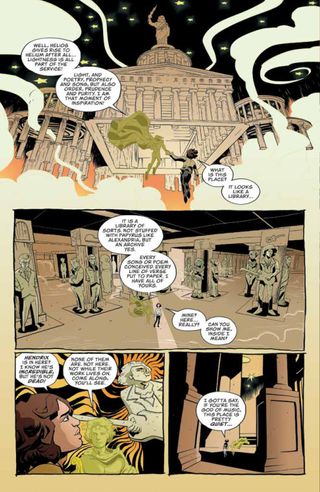
Moore: The most important thing for me was putting as much of the time it was made into the book. I didn't want it to feel like my hot take on the album, I wanted the stories to feel like the songs do, and leave you feeling like you had a trip to 1969.
The pressure to do that as a 43-year-old British woman who certifiably wasn't there at the time was pretty massive, but I just dug deep with the research and approached it the same way as if I was writing stories about Victorian crimes, or Greek Tragedies or whatever. There is a wealth of great Doors material out there, and it was an absolute pleasure to spend time digging through it all.
Nrama: Z2 has said the surviving bandmembers Robby Krieger and Johns Densmore have been giving input on this project. What's it like having that, but also balancing that without becoming (just) an extension of them and their version of events?
Moore: We had a lot of input from the guys, about the direction they wanted it to go in, and the main thing was balancing the biographical and historical material with some more fantastical elements. They didn't want it to just be an autobiographical book (although I could have happily written one!), but also it couldn't just be stories inspired by the lyrics.
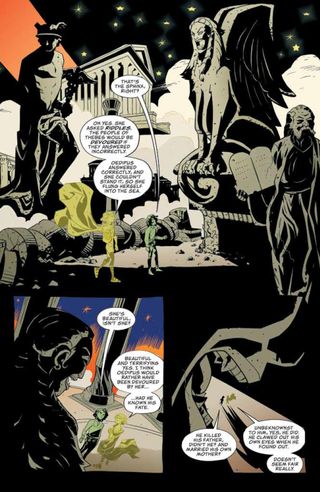
In the end, we settled on an anthology-style mixture, with themes that run through them all, but each story is different.
Nrama: For this, you're choosing one era and going deep on one time period - the period surrounding the album Morrison Hotel. What's it like limiting it to that, but being able to as a result go deeper into this one period versus trying to get EVERYTHING in?
Moore: It was crazy, to be honest.
I remember they sent over a list of possible historical events that were concurrent with the studio sessions when the album was recorded.
I was expecting to have to really dig for stuff, but it was 1969, the year the '60s burnt up under their own heat, and everything kind of fell to pieces in the most spectacular way. There was Vietnam, and the marches against it, there was the Moon landing, John and Yoko asking for peace, Ronald Reagan declared martial law in UC Berkeley… times were wild!
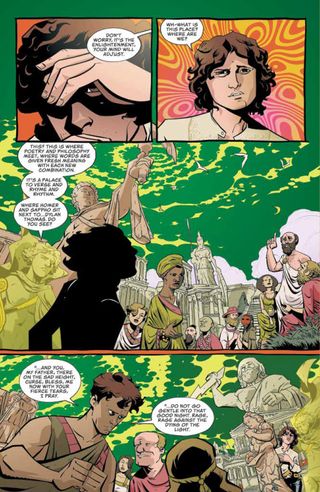
Every story idea I had, I would sit down to find some juicy facts to center it around, and three days later I'd still sit there gibbering about Nixon. I had to pick the bits I thought resonated with the songs, and try and pull something of the moment out of the ether. I hope I succeeded.
Nrama: You hit on my next question. What was it like using this as a lens to dig into the times the Doors were living in?
Moore: Yes, I mean the Doors always said they were not a political band, but as countercultural icons, their whole image, and their message inspired kids to try and do what they did.
Dropping out and being apolitical was as much of a political act as marching was. Both rejected the rigid confines of '50s picket fence suburbia. As much as they were just four guys who really loved to make music, once it was out there, that music meant a whole world of new weird exciting stuff to their listeners. The Doors opened peoples' minds.
That was their mission statement, taken from visionary poet William Blake: "if the doors of perception were cleansed then everything would appear to man as it is, Infinite. For man has closed himself up, till he sees all things through narrow chinks of his cavern."
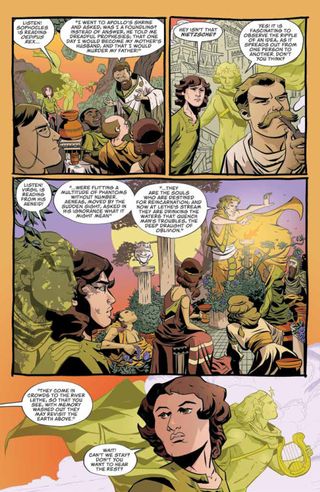
Aldous Huxley's The Doors of Perception explored psychedelic experiences in terms of whole new levels of consciousness. There is no way you can be into all of that, reading Huxley and Blake, dropping LSD, and listening to the Doors, and consider yourself part of regular white bread meat and potatoes America. And if you aren't part of that, part of society, then what are you?
Nrama: You've got a real all-star band yourself of artists on this - Marguerite Sauvage, Colleen Doran, Michael Avon Oeming, Jill Thompson, Vasilis Lolos, and more to be announced. How are you and Z2 working to get the best of each artist with the choice in which portions to draw - and any examples you can talk about or show of this being drawn?
Moore: Oh man, the whole thing has been incredible - I said to [Z2 Comics' senior editor] Rantz Hoseley when he was throwing names at me for the book that it felt like asking 20 people out on a first date at once. I was terrified if I'm honest, but once I got into it, it was a gift to have such amazing talents on each of the stories.
Vasilis Lolos is the coolest guy, I threw about 20 really difficult famous faces into his story and some really tricky location stuff, and he took it like a champ and absolutely nailed his story. You can feel the music crackling off the page!
Jill Thompson I knew I had to write it dreamy and floaty, a really light summery story, where you could feel the warm air and smell the weed on the breeze, and Jill's watercolors did that effortlessly.
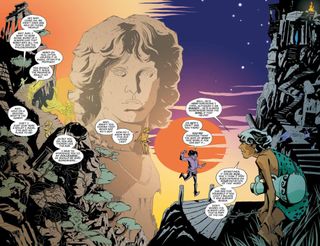
Colleen Doran had the most complex reference to work from out of everyone I think, including theater plans, stage sets, old posters, programs, photos, links to crazy sites with piles of pictures on, the poor woman, even 15th-century engravings! The thing is, because she is Colleen Doran, she not only delivered it but made it ten times better than I imagined.
The book has been an absolute dream from start to finish.
Nrama: Speaking of the start... why did this project - a biographical story of the Doors - jump out to you as something you wanted to do in the first place?
Moore: Well, I was already a fangirl, obviously, but I'm an absolute research nerd, too, so I absolutely love getting stuck into the pile of material and finding an ancient GeoCities blog from 2005 that has six pictures of Jim that corroborate the idea I had about a gig or a meeting or whatever. I love that feeling of finding some tiny thing and it slotting into place.
I had so much leftover, there is easily another whole book worth of material that I couldn't squeeze in. I don't make my own life any easier, but I really enjoy the work, which is the point right? A high point was sitting down with my morning coffee to find an email linking me to The Doors picture archive. Pictures of them all back in the day, looking like gorgeous fresh-faced angels the lot of them, playing their hearts out in the London Fog club in LA. I had to pinch myself a few times.
Nrama: What's your big goal with this that you want to hit people with by the time they turn the last page?
Moore: I want them to feel like they've been dragged through a huge crazy party, full of pretty girls and loud music, where they knew the songs, but only made it to the dance floor for a second, before they were dragged off into a darkened room, or outside to look at the stars.
I want their head to be spinning in the best possible way, and for them to want to turn to the front and read it all again. That's what the album does, isn't it? All I'm really trying to do is keep up!
Morrison Hotel goes on sale March 24, both in print and digitally. For the best digital comics experience, read our list of the best digital comics readers for Android and iOS devices.
Chris Arrant covered comic book news for Newsarama from 2003 to 2022 (and as editor/senior editor from 2015 to 2022) and has also written for USA Today, Life, Entertainment Weekly, Publisher's Weekly, Marvel Entertainment, TOKYOPOP, AdHouse Books, Cartoon Brew, Bleeding Cool, Comic Shop News, and CBR. He is the author of the book Modern: Masters Cliff Chiang, co-authored Art of Spider-Man Classic, and contributed to Dark Horse/Bedside Press' anthology Pros and (Comic) Cons. He has acted as a judge for the Will Eisner Comic Industry Awards, the Harvey Awards, and the Stan Lee Awards. Chris is a member of the American Library Association's Graphic Novel & Comics Round Table. (He/him)
